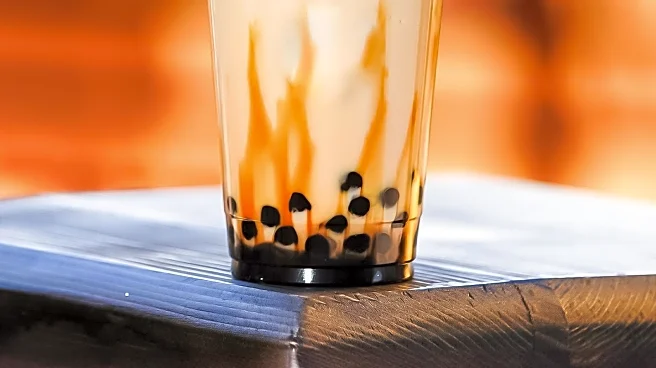What's Happening?
Consumer Reports has conducted safety tests on bubble tea products, revealing the presence of lead in tapioca pearls used in the drink. Bubble tea, also known as boba or pearl milk tea, originated in Taiwan in the 1980s and has gained global popularity.
The tests involved samples from popular chains Gong Cha and Kung Fu Tea, as well as packaged products from Trader Joe’s and WuFuYuan. Although all samples contained lead, none exceeded Consumer Reports' level of concern for lead exposure. The report suggests treating bubble tea as an occasional treat due to potential health risks associated with lead exposure.
Why It's Important?
The findings highlight potential health risks associated with consuming bubble tea, a popular beverage among young consumers. Lead exposure, even at low levels, can accumulate over time and pose health risks, particularly to vulnerable populations such as children. The report may influence consumer behavior and prompt regulatory scrutiny of food safety standards in the beverage industry. Companies involved may face pressure to improve quality control measures to ensure product safety.
What's Next?
Following the report, Trader Joe’s has discontinued its Instant Boba Kit, and WuFuYuan has implemented stricter testing standards. Gong Cha and Kung Fu Tea have yet to respond to the findings. The report may lead to increased consumer awareness and demand for transparency in food safety practices. Regulatory bodies could consider revising guidelines for permissible lead levels in food products, potentially impacting the bubble tea market.
Beyond the Headlines
The report underscores the broader issue of lead contamination in food products, which is a concern due to widespread soil contamination. It raises questions about the ethical responsibility of companies to ensure product safety and the need for stricter regulations to protect public health. The findings may also prompt discussions on sustainable agricultural practices to reduce heavy metal absorption in crops.

















